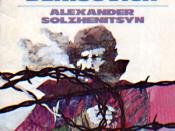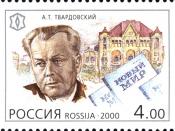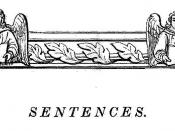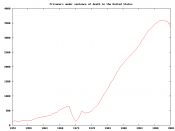One Day in the Life of Ivan Denisovich The opening scene of Ivan Denisovich is different in each translation but has a same basis and storyline. Each writer (Ralph Parker, H.T. Willetts, Max Hayward, and Ronald Hingley) gives a slightly different tone to the piece.
From the original many writers have translated the Russian novel to English. In each translation the chronology of the piece is the same, following the time order of the original by Solzhenitsyn. The languages are structured very differently then English and this causes the writers to make choices about how they present their sentences. It is the writers' decision then to leave the sentences fragmented or to restructure them in such a way that the reader understands easily. In the Signet edition the sentences were noticeably longer then Willetts version; the fragmented Russian translation connected into flowing sentences by the use of the comma.
Willetts' version contrasts with the flow in its short sentences in a fractured style. Without its many commas and lacking the brevity of Willett is the Bantam version of the book. Here the sentences are simply sentences of normal size. They are predictable in length and repeats the style. Parker's Signet Classic edition contains a harsher militaristic tone then the other two. An example of this is the banging of reveille. Parker says, "The clanging ceased;"ÃÂ whereas the other two simply "died away"ÃÂ. The longer, comma infested sentences of this version describe the conditions of the camp, perhaps with a point of view leaning toward the ideas of an officer perhaps, accepting nothing but the harshness of reality, or the POV of Shukov. In the Nonday Press edition, translated by H.T. Willets, the tone is softer and storyline. The fragmented English sentences make this version an easy read with added suspense of abruptly ending lines. The description is more about the physical camp then the prisoner's experiences. Shukov is only breifly mentioned in paragraph two; it isnt until the last paragraph that Shukov's experiences are described in more detail.
The Bantam edition, translated by Max Hayward and Ronald Hingley is a combination of the harsh tone of signet and the storyline feeling of Noonday Press. Its sentences are storylike, flowing lines into paragraphs. Its descriptions depict the harsher realities of prison life. Shukov is introduced in the second paragraph and immediately he becomes the main character; this is obvious to the reader, unlike Noonday. It could be softer because there are two translators here and this would be a combination of their styles. This version describes his thoughts.
In conclusion, each version at its core is close to the original Russian but with each translation the story changes slightly to reflect its translator.





